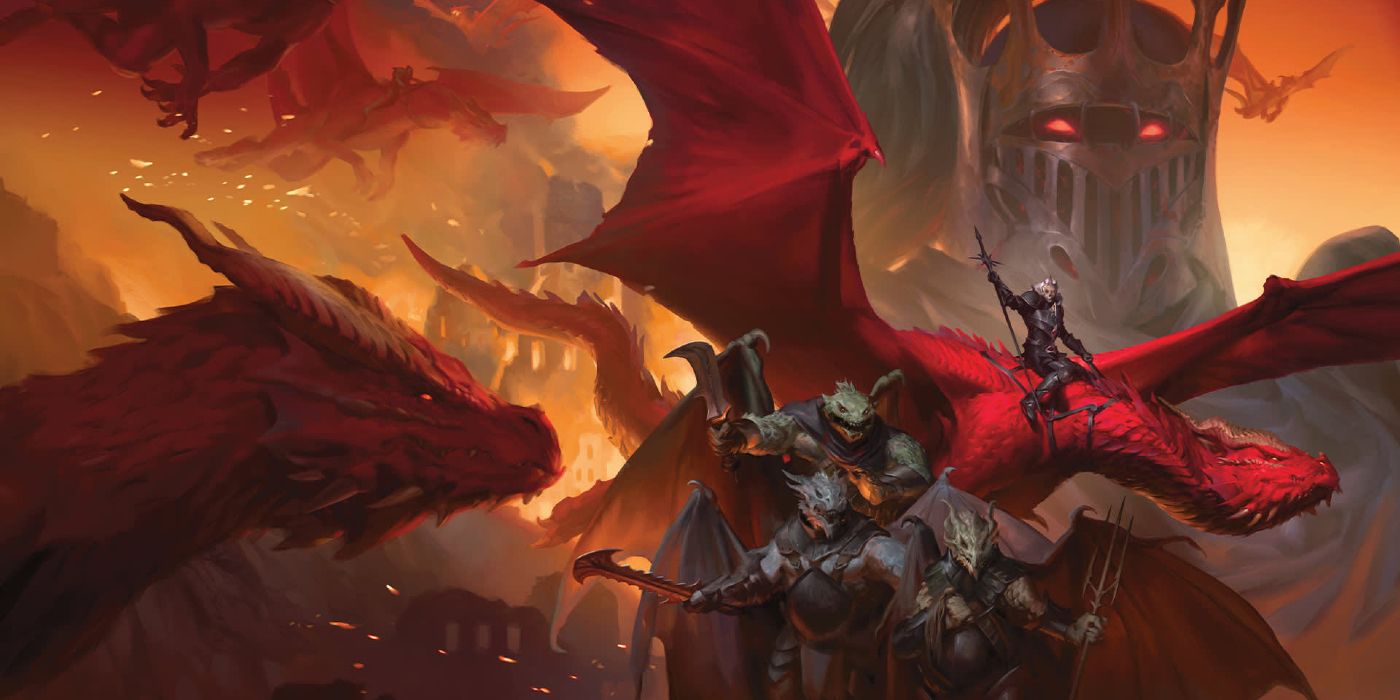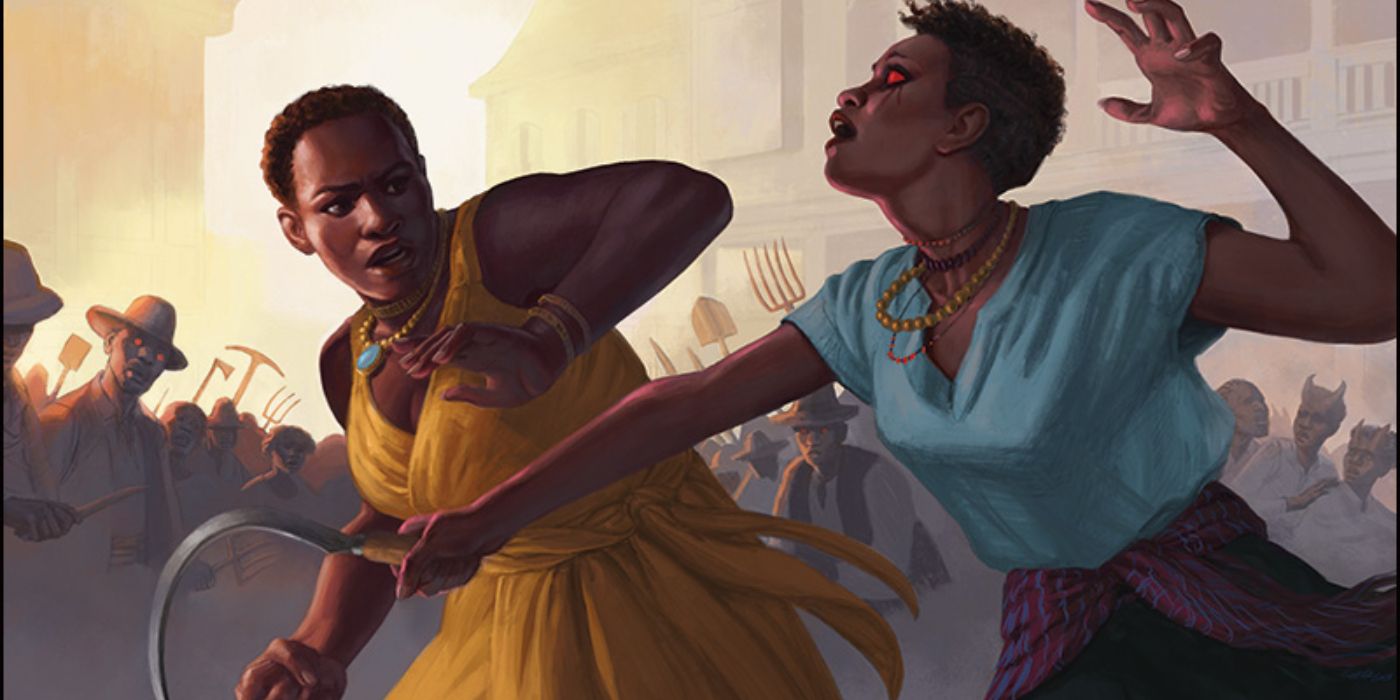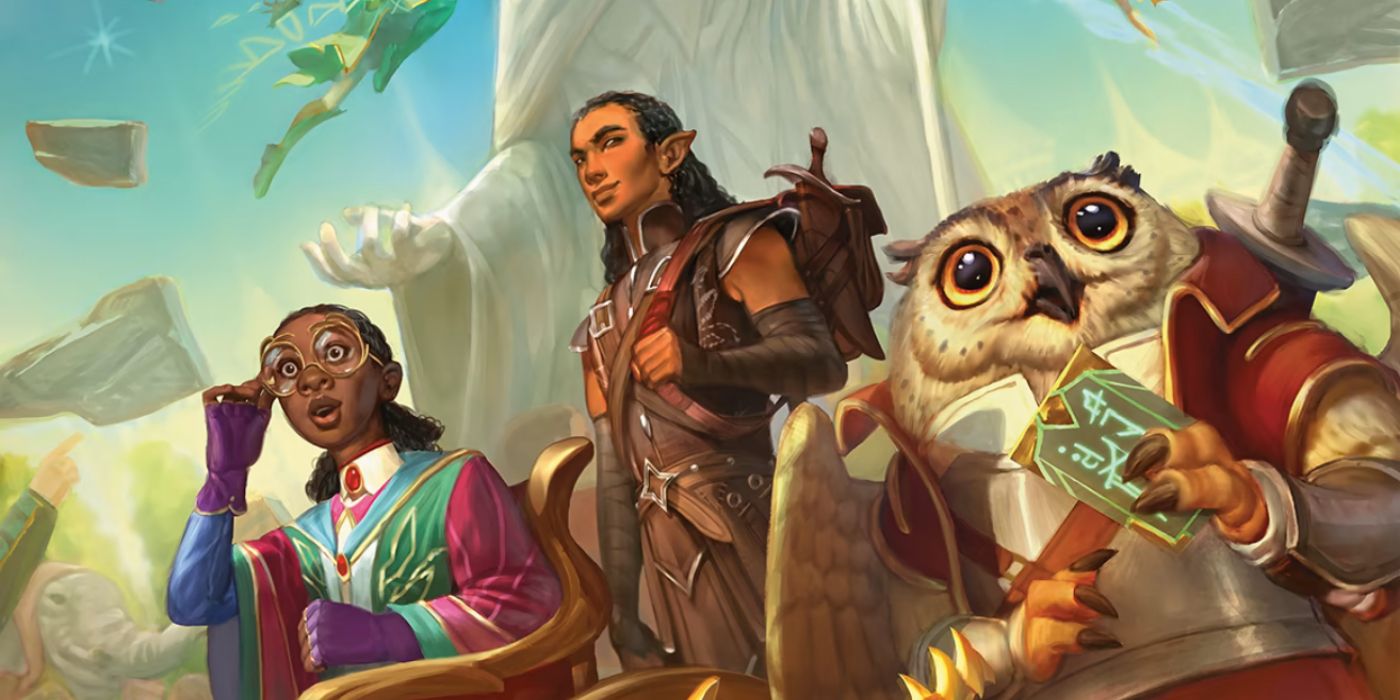While Dungeons & Dragons can require very few resources to play, some players might find themselves overwhelmed by the rules or extremely reluctant to read the Player’s Handbook and learn them. This can become a problem during sessions, often resulting in either lots of questions that interrupt the game or players outright ignoring and disrespecting the core rules. When it comes to this, to ensure that everyone has a fun experience while playing, the Dungeon Master is responsible to deal with these situations, but it requires certain care to understand the players’ needs.
Everyone should learn how to play D&D, but there are many factors that can make this quite difficult for certain players. While Dungeons & Dragons is highly accessible to most people, there are more than fifty different books dedicated to determining rules, campaign settings, and adventures themselves, and people that were only recently introduced to the game might not know where and how to start reading. Not only that, but in a world where the only limits are the boundaries established by the DM and their own imagination, new players can find themselves overwhelmed by how many things they need to keep track of. Every person has different needs, and to solve these problems, Dungeon Masters need to understand exactly what they are.
Fortunately, there are many resources a DM can use to make D&D exciting and help their players understand the rules better. For newer players, a tutorial Session Zero to introduce them to basic concepts like character creation, combat, and spellcasting can help them have a better grasp of how these mechanics work. After they get the basics, Dungeon Masters can point them to certain learning resources, like YouTube videos and official books that they should read just to get started. Communicating needs is highly important, but if players are simply refusing to learn the rules to play, disrupting the others’ fun, the DM has the power to kick them from the table.
A Tutorial Session Zero Helps New D&D Players
New D&D players often need to play special sessions to have a better grasp on the rules. They are commonly the ones that struggle the most when learning, especially if they’re diving into the roleplaying world for the first time. This can generate uncomfortable situations during sessions, with a constant stream of questions and doubts about the general mechanics of Dungeons & Dragons interrupting the game and, sometimes, even contributing to starting arguments among players. However, this can be avoided by introducing newer players to D&D in a tutorial Session Zero.
During video game tutorials, players learn its basic controls and mechanics, teaching them how to operate their characters for the story. In Undertale’s tutorial, for example, the character is introduced to the basic fight mechanics: how to attack, talk, use items, flee battles, and spare enemies. And, although Dungeons & Dragons is a tabletop game, DMs should use tools like this to make D&D fun for new players. By allowing them to experience how the written rules work inside the context of the game, the Dungeon Master not only assures that they will have fun, but also creates a safe space for them to learn. This can prevent most questions from appearing when the entire party is together, which can reduce the likelihood of this occurring.
DMs Should Encourage Players To Learn D&D's Rules
Although some players’ doubts can be solved with a hands-on experience in a tutorial Session Zero, others might find themselves more comfortable using other methods to learn. Communicating with them outside the session helps the Dungeon Master understand exactly what the difficulties they’re having are and decide if they can or can’t help them. And, even if the DM can’t provide exactly what is needed, there’s plenty of third-party content as well as official Wizards of the Coast material that can help players learn the rules.
Dungeon Masters can avoid confused players getting D&D rules wrong at the table by pointing them toward the Basic Rules free PDF provided by Wizards of the Coast that presents fewer rules and in a more condensed manner. It doesn’t have all the class mechanics or spells, but it’s a good start for a person that feels overwhelmed by too much written information. But there’s also other types of content made by and for players and DMs that can also make the Player’s Handbook feel less intimidating. JoCat’s animated guide to D&D on YouTube is an excellent, concise synthesis of simple class mechanic, and the Dungeon Dudes YouTube channel is another resource for new players to grasp the terminology around certain rules.
Not only that, but it’s part of becoming a better Dungeons & Dragons DM to make sure that everyone at the table has their boundaries respected. For players learning the rules, this means shutting down any attempts at talking down to or mocking their lack of knowledge and experience. Issues like this can drive away newer players from Dungeons & Dragons, and no matter how skilled a player is, they also deserve to have fun, and DMs should make sure to create positive environments for them to do so.
D&D Players Who Refuse To Learn Should Be Kicked Out
Even though Dungeon Masters may have the best intentions, not every player can be helped. Despite the DMs best efforts, there can be cases of certain people outright refusing to learn the rules and disregarding them completely. And communicating outside of game becomes even more essential to preserve everyone’s entertainment when faced with this type of player, even if that leads to the DM considering a ban on a D&D player and potentially kicking the person from the table.
It's essential that Dungeon Masters make the person in question understand why their attitude is disrespectful and upsetting through communication. This will hopefully lead to the player in question changing their attitude to make sure everyone else is also having fun, but they might also disregard the issue. When dealing with the second scenario, Dungeon Masters should be unafraid to resort to more extreme measures such as kicking the person out of the group. Resorting to this should always be the last option, but when a player disrupts others’ fun and refuses to change their attitude for the better, it’s the best way to deal with this situation.
D&D is a highly accessible game that requires little to nothing to start playing. However, many still have difficulties when learning D&D's rules, which are being constantly upgraded and revised as the game’s popularity grows. It's important that everyone have access to a safe space to use when learning how to play Dungeons & Dragons, and it’s part of the Dungeon Master’s responsibility to make sure this happens. By communicating with players and trying to be understanding about their difficulties, they can avoid many issues that could arise at the table, making the game fun for everyone.
Sources: JoCat/YouTube, Dungeon Dudes/YouTube




